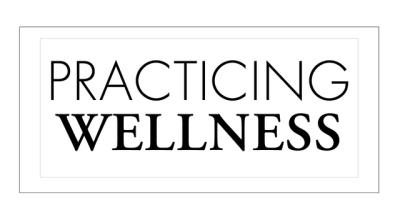
Imposter syndrome is a term that describes high-achieving individuals who, despite their objective successes, fail to internalize their accomplishments and have persistent self-doubt and fear of being exposed as a fraud or impostor.1
Imposter syndrome is more common in people who exhibit traits of conscientiousness, achievement orientation, and perfectionistic expectations, as well as those working in stressful and highly competitive professions.2 Researchers who’ve studied the relationship between compassion, burnout, and imposter syndrome found that those who experience imposter syndrome tend to exhibit similar personality traits:
- Engaging in self-doubt, fearing they cannot repeat their accomplishments and dwelling on past failures. The self-doubt can be accompanied by worry, anxiety and fear around projects, and a propensity to either overwork and overprepare or procrastinate.
- The need to be special or the best and, falling short of being the best, a tendency to dismiss their very real talents.
- The superwoman/superman aspect, which results in the need to do everything perfectly and with ease.
- A fear of failure associated with shame and humiliation which results in taking drastic measures to avoid making mistakes, including steering clear of challenges or situations where the possibility of failure exists.
- Denying competence and discounting praise, resulting in an inability to accept positive feedback.
- Fear of and guilt surrounding success due to the fear of consequences stemming from family-of-origin or environmental messages.3
Lawyers remain among the top category of professionals who experience imposter syndrome. It should come as no surprise — attorneys are expected to be organized, flawless, high achieving, and excellent in their field. They are known to be hard working, devoted, and driven toward success.
New lawyers, especially, are more likely to experience imposter syndrome. In a constantly growing, success-driven environment, young associates feel an immense amount of pressure to excel immediately upon starting their new careers. Other potential contributors to imposter syndrome include excessive workloads, inefficient work processes, clerical burdens, lack of input or autonomy relating to issues that directly impact their work lives, organizational support structures, and leadership culture.4
New lawyers frequently experience anxiety and low self-efficacy while transitioning to the workplace. Their new environments include unanticipated changes in structure, oversight, and appropriateness regarding interpersonal interactions. Compounding these challeng es, entering the workforce often coincides with decreased contact with peer and family support networks. The perception of diminished interpersonal support can stimulate feelings of isolation and exacerbate psychological difficulties associated with the transition.5
Not only are new lawyers expected to take on caseloads comparable to those of their senior counterparts, but they lack the experience and confidence to carry out tasks with the same aplomb. Constantly being compared to their more seasoned coworkers creates an almost impossible standard. Those experiencing imposter syndrome fight to reach that standard — even though they know just how impossible it is. Any failure reinforces their feelings of not being good enough.
Those with imposter syndrome lose self-confidence, internalize failures, are hyper-focused on mistakes, and internalize stress and anxiety. Consequently, they try to compensate by working harder and overextending themselves. They emphasize perfection and effort and, as a result, often inflict unachievable, unrealistic goals upon themselves. When those goals are not achieved or the individual is not acknowledged for reaching them, the feelings of inadequacy are accentuated, leading to an endless cycle of workaholic behavior, which then leads to exhaustion and, finally, burnout.6
Impostor syndrome not only affects a lawyer’s mental health, but it may impact their career as well. Failure to recognize this phenomenon can stunt growth, hamper leadership, and impede innovation. Lawyers with impostor syndrome may refrain from moving outside of their comfort zones and avoid taking important risks when making decisions that could be considered unsafe and harmful to their clients.7
The best way to deal with imposter syndrome is preventing it.8 Many tools are available to minimize imposter syndrome effects. The following techniques are the most recommended by experts:
- Validation. Encouraging the development of self-validation skills can teach emerging lawyers that their desire to feel competent is healthy and appropriate. Therapy and mindfulness training have proven beneficial in teaching alternative options to external validation.
- Normalizing imposter syndrome. Talking about imposter syndrome with others who are going through the same experiences promotes universality and vicarious learning. The comfort in feeling like you are not alone is healing.
- Changing your stress response. Changing the way your body reacts to stress is the most notable change one can make to achieve instant results. Taking breaks throughout the day, practicing mindfulness, talking about your stressors, and participating in stress-relieving exercises can help.
Taking steps to manage and prevent imposter syndrome is the best method of treatment. It is unlikely that the culture of the legal profession will change in the near future, but implementing these techniques as part of your daily practice can enhance your belief in yourself and your professional abilities.